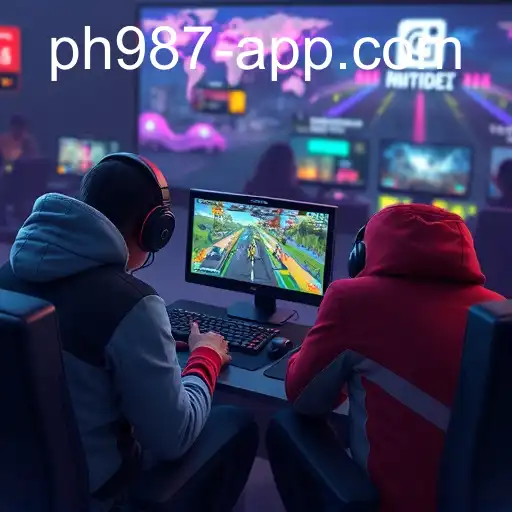Educational Games


The Rise of Educational Games: Enhancing Learning Through Play

In the evolving landscape of digital education, educational games have emerged as a pivotal tool that combines entertainment with learning. As we navigate through the 21st century, this engaging medium has proven to be a cornerstone in supporting and enhancing a variety of learning outcomes for students across different age groups and instructional contexts.
Educational games, falling under the category keyword 'ph987,' are designed with the intent to teach users particular skills, concepts, and subjects, all while providing an engaging and interactive experience. These games leverage game mechanics and storytelling to stimulate learners’ interest and motivation, transforming traditional learning experiences into dynamic and compelling activities.
Through these games, educators can provide students with immersive experiences that encourage exploration and active participation. Subjects such as mathematics, science, history, and even language arts are often covered in these games, which aim to reinforce curriculum content by presenting challenges, scenarios, and problem-solving quests that learners must navigate.
Furthermore, educational games address diverse learning styles. Visual learners might benefit from graphics and animations, while auditory learners might find sound-based games more beneficial. Kinesthetic learners find value in games that require physical interaction, enhancing their learning through doing.
Historically, educational games began as simple formats such as quiz-based or flash-card style interactions. Nowadays, they have evolved into sophisticated platforms that utilize cutting-edge technologies such as virtual reality (VR), artificial intelligence (AI), and adaptive learning algorithms to provide personalized educational experiences.
The incorporation of VR in educational games allows learners to dive into historical environments or explore distant planets, making abstract concepts more tangible. AI, on the other hand, adjusts the difficulty and content in real-time according to the learner’s individual progress, ensuring that each educational journey is tailored to their unique needs.
Moreover, educational games serve to level the educational playing field, providing access to quality learning resources irrespective of geographical and socio-economic barriers. With the widespread availability of mobile devices and the internet, these games can be accessed by a large audience, offering a world of knowledge right at their fingertips.
In conclusion, educational games are more than a blend of play and pedagogy; they represent a vital shift toward an interactive and student-centered approach in education. As technology continues to advance, the potential for educational games to enrich and transform the educational landscape is immense, promising not just to inform, but to inspire and ignite the joy of learning.
The Evolution of Online English Gaming and Key Insights
An exploration of the current trends and insights in the online English gaming industry, with a focus on the keyword 'ph987'.
The Rise of Gaming Communities in 2026
Exploring the impact of evolving gaming communities and platforms like ph987 in 2026.
The Evolution of Online Gaming Platforms
Exploring the impact of online gaming platforms on the digital landscape and player engagement.
 Skip to content
Skip to content




